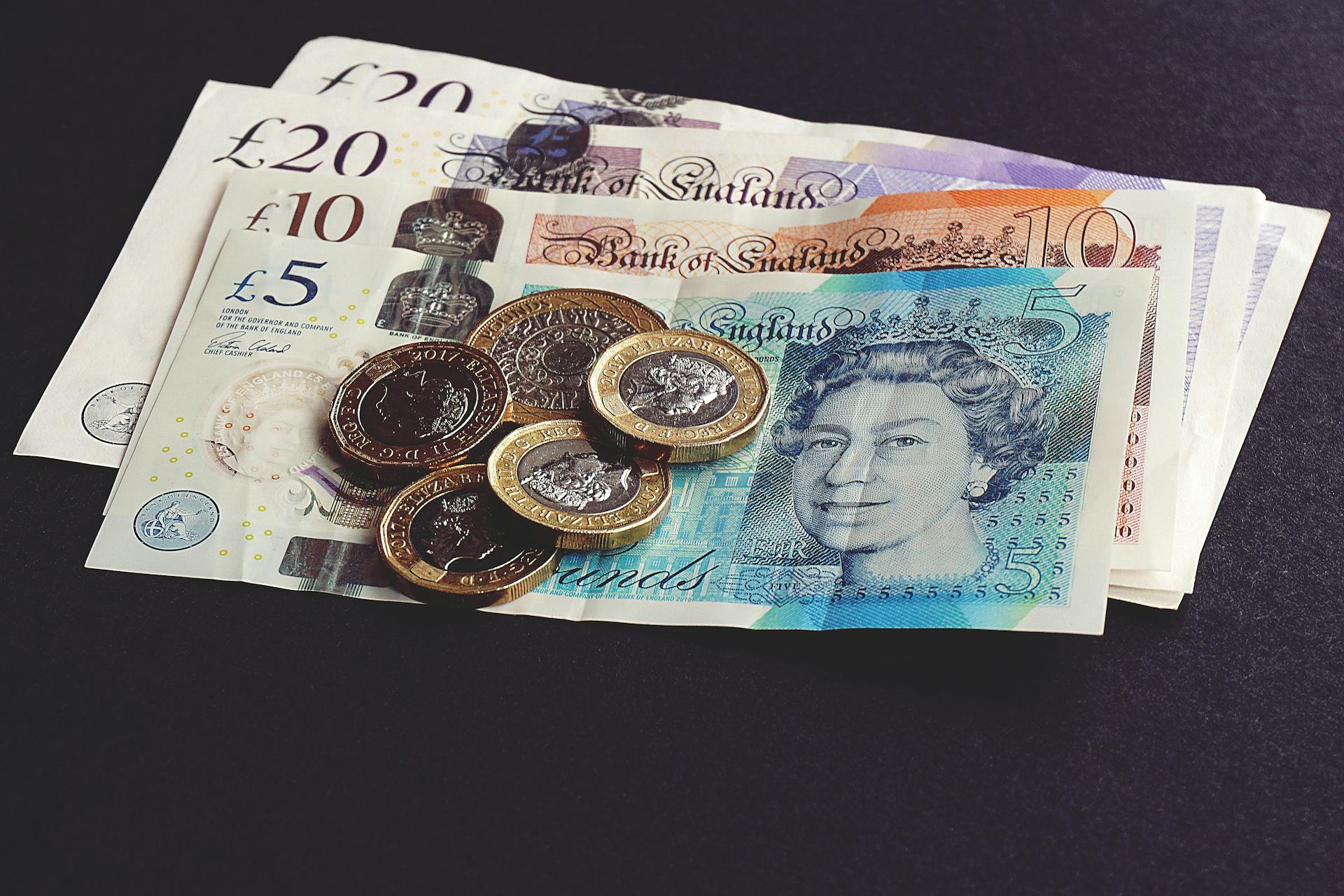
Offshore bank accounts can offer a range of benefits, but it's essential to understand the risks involved as well.
One of the main benefits is tax efficiency, as many offshore banks offer lower tax rates or even tax-free banking.
Offshore banks can also provide greater financial security, with some countries having stricter banking regulations and fewer instances of bank failures.
This can give account holders a sense of peace of mind, knowing their money is safer.
However, offshore banks can also be associated with higher fees and charges, which can eat into your account balance.
Additionally, some offshore banks may have stricter requirements or regulations for opening and maintaining an account.
Check this out: Captive Insurance Company Tax Benefits
Benefits and Advantages
Offshore banking can be a great way to diversify your portfolio and cut down risk. By investing in different asset classes and currencies, you can help protect your overall investments.
You can also get favorable tax treatment on your investments, depending on where you hold your assets. For example, the Cayman Islands doesn't impose taxes on income, dividends, or capital gains, which means you get to keep more of the money you earn.
For more insights, see: National Savings and Investments
Offshore banks provide access to politically and economically stable jurisdictions, which can be a big advantage for residents of areas with a risk of political turmoil.
Some offshore banks may operate with a lower cost base and offer higher interest rates than domestic banks. This is because they often have a narrow range of services provided and can take advantage of technological advancements.
Offshore finance can help developing countries source investment and create growth in their economies. It can also help redistribute world finance to and from the developed and developing worlds.
Here are some of the benefits of offshore banking:
- Interest is generally paid by offshore banks without tax being deducted.
- Some offshore banks offer banking services that may not be available from domestic banks, such as anonymous bank accounts or higher or lower rate loans based on risk.
- Offshore banking is often linked to other corporate structures, such as offshore companies, trusts or foundations, which may have specific uses and tax advantages.
Legality and Safety
Offshore bank accounts are perfectly legal, as long as they are not used for illicit purposes. You must report any and all offshore accounts you hold to your country's taxing authority.
Hiding your offshore assets is illegal, so transparency is key. Offshore accounts are completely legal if opened and operated in a way that complies with the laws of your home country.
Switzerland's banks remain some of the safest in the world, with a stable economy and virtually no inflation. The bank regulators in Switzerland require that banks hold on to high levels of capital for deposit protection.
Expand your knowledge: How Much Money Do a Atm Hold
Are Legal?

Offshore accounts are perfectly legal, as long as they're not used for illicit purposes. You must report any and all offshore accounts you hold to your country's taxing authority.
Opening an offshore bank account is completely legal, but hiding your offshore accounts is not. This means you'll need to comply with annual reporting requirements for your account.
Offshore banking constitutes a sizable portion of the international financial system, with some experts believing that as much as half the world's capital flows through offshore centers. OFCs are said to have 1.2% of the world's population and hold 26% of the world's wealth.
You can bank offshore with confidence, knowing that foreign banks don't take the same risks as those in the US. The Federal Deposit Insurance Corporation (FDIC) in the US holds less than one percent of deposits in its reserves.
Swiss banks are considered some of the safest in the world, with a very stable economy and virtually no inflation. They also have a currency backed by 40% gold reserves.
Consider reading: Fdic Insurance Business Accounts
Choosing a Jurisdiction
Choosing a jurisdiction is crucial when it comes to offshore banking. Consider jurisdictions in good financial condition, with peaceful governments and longstanding financial services industries.
Look for a history of political and economic stability, as this is a key factor in determining the safety and reliability of an offshore banking jurisdiction. The US, Switzerland, and the Cayman Islands are popular offshore financial centres that fit this criteria.
The Cayman Islands, for example, has a well-established financial sector and is home to $1.9 trillion in deposits, according to a letter by the District Attorney of New York. Official statistics suggest the actual amount held on deposit is around $1.5 trillion.
In addition to stability, consider the reputation of the jurisdiction. If a jurisdiction has a history of financial stability, it's a good sign that they can effectively regulate their financial services industry. Jersey, Guernsey, and the Isle of Man are also known for their well-regulated banking infrastructure.
Ultimately, what people and legislatures do is more important than what they say. So, if a jurisdiction has a reputation for financial stability, it's a good starting point for choosing your offshore banking haven.
Additional reading: Offshore Bank Account Cayman Islands
Myths: Debunked
Offshore banking is often misunderstood, but we'll set the record straight.
Many people think offshore banking is only for wealthy individuals, but that's not true. We deal with clients from all walks of life who use offshore banking for various reasons.
The idea that offshore banking is only for tax evaders is a common myth. In reality, many countries offer tax incentives for foreign investors and expats.
Offshore banking is often associated with secrecy, but most reputable banks are transparent and follow international regulations. We've worked with many clients who value the anonymity that offshore banking provides, but still want to be compliant with tax laws.
Some people believe that offshore banking is a way to hide assets, but that's not the case. Offshore accounts are typically linked to the client's home country, making it easy to access and manage their finances.
The myth that offshore banking is a way to avoid financial regulations is simply not true. Reputable offshore banks are subject to the same regulations as onshore banks, and must adhere to anti-money laundering and know-your-customer laws.
In reality, many people use offshore banking for legitimate purposes, such as investing in foreign markets or diversifying their assets. It's a common practice among international business owners and entrepreneurs.
For your interest: Predatory Lending Laws by State
Tax Optimization Becomes More Attainable
Tax optimization becomes more attainable with offshore banking. An offshore bank account can deliver the tax benefits of a holistic wealth diversification strategy.
Income gained from an offshore bank account might not be taxed at all or will be taxed at a low rate. This is because most national systems of taxation tax income and/or capital gains rather than accrued wealth.
The Bahamas, Bermuda, Cayman Islands, and the Isle of Man are popular offshore jurisdictions that offer fairly secure investment opportunities. These jurisdictions are known for their secure investment opportunities.
You can use an offshore bank account to avoid unfavorable circumstances associated with keeping money in a bank in your home nation. This often includes avoiding tax obligations.
A lower estimate of £13 trillion is on deposit in offshore accounts. If these assets earned an average 3% a year in income for their owners taxable at 30%, then the offshore funds would generate £121 billion in tax revenues.
It's essential to conduct due diligence to determine exactly which jurisdiction and which bank to work with before you start strategizing for lower taxes.
Consider reading: Which Bank Is Most Secure for Online Banking
Getting Started
To open an offshore bank account, you'll first need to read the account policies and fees carefully, including monthly maintenance fees, transfer fees, and minimum balances. This will help you understand what to expect.
Gather the necessary documents, such as your occupation, ID, utility bill, and date of birth, as required by the bank. Some banks may also require notarized copies or apostille certificates.
You'll also need to choose your currency, as opening an account in a different country may allow you to use multiple currencies to hold, deposit, and withdraw your funds. This can save you money on fees and prevent lost value from currency exchanges.
Here are the 5 steps to open an offshore bank account:
- Create an offshore banking strategy and identify your goals.
- Find a bank that will fit your offshore strategy and hit all your objectives.
- Open an account online or in person and note the bank fees you'll be liable to pay.
- Deposit money into your newly created offshore account.
- Meet all reporting requirements that might be placed on you.
How to Open
To get started with opening an offshore bank account, you'll need to create an offshore banking strategy and identify your goals. This will help you determine which bank and services are best for you. Consider what you want to achieve, such as reducing tax liabilities or protecting your assets.

You'll also need to find a bank that fits your strategy and meets your objectives. Research different banks and their services, such as savings accounts, corporate administration, and foreign exchange. Some banks may offer more personalized services, while others may be more low-cost and undifferentiated.
To open an offshore account, you'll typically need to gather necessary documents, such as your passport, driver's license, and proof of address. You may also need to provide information about your occupation and financial situation. Some banks may require notarized or apostilled documents.
It's essential to understand the fees and policies associated with your offshore account, including monthly maintenance fees, transfer fees, and minimum balances. You should also consider how you want to fund and withdraw from your account, such as using wire transfers or debit cards.
Here are the typical steps to open an offshore bank account:
- Create an offshore banking strategy and identify your goals.
- Find a bank that will fit your offshore strategy and hit all your objectives.
- Open an account online or in person, making a note of what bank fees you'll be liable to pay.
- Deposit money into your newly created offshore account.
- Meet all reporting requirements that might be placed on you.
Remember, it's crucial to do your due diligence or seek help when planning your offshore banking strategy to avoid potential fines or penalties.
Get Help

Getting started with offshore banking can be daunting, especially when it comes to choosing the right bank. It's extremely important to have the guidance of someone with experience in setting up accounts offshore.
You don't want to end up with a bank that doesn't treat its depositors right, after all, we are talking about your money here. Any bank can make themselves look great, but only someone with experience can tell you which ones really deliver.
Setting up thousands of accounts offshore takes expertise, and that's exactly what you need to ensure your money is safe. It may cost a little, probably a lot less than you think, but it's better than the devastating alternative of choosing the wrong bank.
Broaden your view: Bofa Accounts Temporarily Unavailable
Risks and Challenges
History tends to repeat itself, and politics can make protecting your assets and wealth nerve-wracking. That's why putting money into offshore accounts in various countries can be an excellent way to diversify.
Challenges of offshore banking and account maintenance are real. There are a few challenges and considerations to keep in mind when it comes to account maintenance.
Offshore banking for high-net-worth individuals is not a DIY undertaking. We're not saying that to secure you as a client but because there is simply too much at stake if you mess it up.
Political Risk Diversification
History has shown that economies and domestic banks can fail, leaving individuals financially devastated. For example, many people who held all their money in the United States lost everything during the last economic crash.
The concept of asset diversification is well-known, but geographic diversification is often overlooked. Holding assets offshore can significantly reduce the risk of financial loss.
The US government's debt is staggering, with a total of $33.7 trillion in federal debt and $120 trillion in unfunded liabilities. This has raised concerns about the government's ability to pay its bills.
Worth a look: Debt and Finance Advising
Bureaucrats can freeze domestic bank accounts without proof or a criminal charge, making it difficult for individuals to access their money. Offshore bank accounts, on the other hand, are much harder to access.
In countries like Cyprus, Ireland, and Poland, governments have taken drastic measures to pay their bills, including seizing citizens' assets. A similar scenario played out in Hungary, where citizens were forced to give up their private pension plans.
Offshore bank accounts can provide a safe haven for your wealth, protecting it from aggressive lawyers, creditors, and other individuals seeking to claim a portion of your assets.
Check this out: Access Bank South Africa
DIY Risks
Opening an offshore bank account can be a complex task, and it's not uncommon for people to underestimate the risks involved. We've seen firsthand how easily things can go wrong if you don't have the right expertise.
The rules and procedures for account maintenance vary between banks and jurisdictions, making it essential to have insider knowledge to navigate these differences.
It's not just about finding a bank that offers offshore accounts - you need to know what you're looking for, such as multiple currencies or high annual percentage yield (APY) accounts, to advocate for yourself.
Some banks have strict reporting requirements, and you can't just coast by like you used to be able to.
Investing and Trading
Offshore investing can be a complex and costly endeavor, but it offers certain benefits like tax benefits, asset protection, and privacy.
Operating offshore accounts often requires opening accounts in the nation in which the investor wishes to invest, which can be particularly high.
High-net-worth investors are more likely to take advantage of offshore investing due to its high costs.
Offshore investment accounts are generally opened in the name of a corporation, such as a holding company or a limited liability company (LLC), rather than an individual.
This can open up investments to more favorable tax treatment.
Diversifying through currencies can also be a viable option, especially in emerging markets where accounts offer up to 14% APY.
Banks in financial hubs like Hong Kong, Singapore, and Andorra support 12 or even 15 currencies in one safe offshore bank account.
Additional reading: Benefits of a Captive Insurance Company
Investing
Diversifying your investments can be a smart move, especially in today's global economy.
Holding hard assets like gold and silver is a great way to diversify, and it can be a good hedge against market fluctuations. You can also consider emerging market currency accounts that offer up to 14% APY rates.
Some banks in financial hubs like Hong Kong, Singapore, and Andorra support 12 or even 15 currencies in one safe offshore bank account. This can be a convenient way to diversify your investments.
Offshore investing can offer tax benefits, asset protection, and privacy, but it's not for the faint of heart. It often requires opening accounts in the nation where you wish to invest, and it can be particularly costly.
Investing in US dollar accounts can be a safer option, offering yields of 5-6%. You can also consider opening offshore investment accounts in the name of a corporation, such as a holding company or LLC, for more favorable tax treatment.
For another approach, see: Emirates Nbd Bank Account Opening
What Is Trading?

Trading is a way to buy and sell financial assets like stocks, bonds, and commodities with the goal of making a profit.
Offshore trading is a type of trading that involves opening a brokerage or trading account with an offshore investment firm.
Trading this way provides investors with favorable tax treatment, which puts more money back into their pockets.
If this caught your attention, see: Sales and Trading
Regulation and Ownership
Regulation of offshore banking has increased exponentially in the 21st century, but the quality of regulation is monitored by supra-national bodies like the International Monetary Fund (IMF). Banks are generally required to maintain capital adequacy in accordance with international standards.
They must report at least quarterly to the regulator on the current state of the business. The tightening of anti-money laundering regulations in many countries, including popular offshore banking locations, requires bankers to report suspicion of money laundering to the local police authority, regardless of banking secrecy rules.
Critics like the Association for the Taxation of Financial Transactions for the Aid of Citizens (ATTAC) argue that regulations have been insufficient. In the US, the Internal Revenue Service (IRS) introduced Qualifying Intermediary requirements, which pass the names of recipients of US-source investment income to the IRS.
Explore further: Consumer Credit Bureau Report
Some notable regulations include:
- The USA PATRIOT Act, which authorizes the US authorities to seize assets of a bank suspected of holding assets for a criminal.
- The European Union's sharing of information between jurisdictions, enforced in respect of certain controlled centers, such as the UK Offshore Islands.
- The Bank Secrecy Act, which requires taxpayers to file an FBAR for accounts outside of the United States with balances in excess of $10,000.
- FATCA (the Foreign Account Tax Compliance Act), which targets tax non-compliance by US taxpayers with foreign accounts.
What Countries Offer?
Switzerland, Panama, and the Cayman Islands are some of the most well-known countries for offshore banking, known as tax havens with low or no taxes for corporations or individuals.
These countries offer a unique set of policies and restrictions that may differ from those in your home country.
Belize, Bermuda, Singapore, and Germany are also popular places for offshore banking, each with their own set of rules and fees.
Regulation of Banks
Regulation of banks has become a crucial aspect of modern banking, especially in the 21st century. Banks are now required to maintain capital adequacy in accordance with international standards.
The International Monetary Fund (IMF) monitors the quality of this regulation. Banks must report their current state of business at least quarterly to the regulator. This increased transparency is a result of initiatives following September 11, 2001.
Critics like the Association for the Taxation of Financial Transactions for the Aid of Citizens (ATTAC) argue that these initiatives have been insufficient. However, measures like anti-money laundering regulations have been tightened in many countries, including popular offshore banking locations.
These regulations require bankers and service providers to report suspicion of money laundering to local police authorities, despite banking secrecy rules. International cooperation between police authorities has also increased.
In the US, the Internal Revenue Service (IRS) introduced Qualifying Intermediary requirements, which pass the names of recipients of US-source investment income to the IRS. The USA PATRIOT Act, introduced following 9/11, authorizes US authorities to seize bank assets if suspected of holding assets for a criminal.
The European Union has introduced sharing of information between jurisdictions, enforced in respect of certain controlled centers like the UK Offshore Islands. Tax information can now be shared in respect of interest. The Bank Secrecy Act requires taxpayers to file an FBAR for accounts outside the US with balances over $10,000.
FATCA, the Foreign Account Tax Compliance Act, became law in 2010 and targets tax non-compliance by US taxpayers with foreign accounts. It focuses on reporting by US taxpayers about certain foreign financial accounts and offshore assets.
Take a look at this: Libyan Foreign Bank
Ownership
One third of the world's wealth, nearly $6 trillion out of $17.5 trillion, is held offshore by high-net-worth individuals.
This staggering amount is owned by a tiny fraction of the world's population, with £6.3tn held by just 0.001% of the world's population, or around 92,000 super wealthy individuals.
Establishing offshore accounts can be a complex and inconvenient process, but it's not just for the wealthy.
Explore further: Women's World Banking
Frequently Asked Questions
What banks are offshore banks?
Offshore banks mentioned in this context include Royal Bank of Canada, Santander, Barclays Bank, HSBC, and Lloyds Bank, offering international banking services. These banks cater to expats and individuals with international financial needs.
What does the offshore account do?
An offshore account allows you to hold and manage money in multiple currencies, making it easy to send and receive payments globally. It also provides access to expert investment advice and foreign exchange management.
Why do people put money in offshore accounts?
People put money in offshore accounts to protect their assets, invest with tax benefits, and maintain financial privacy. However, it's essential to use offshore banking legally and comply with tax laws to avoid any issues.
Featured Images: pexels.com


